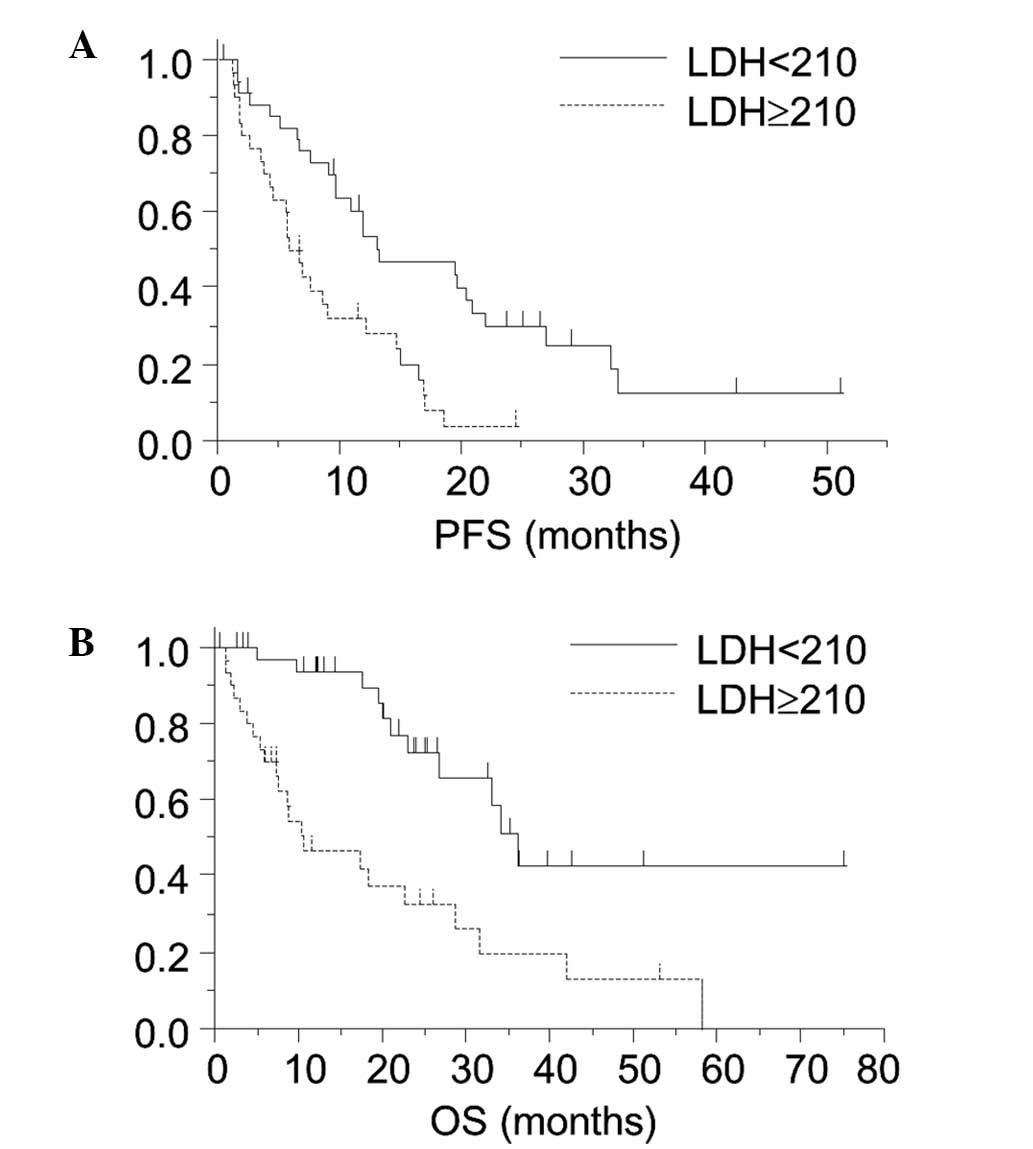Spandidos Publications style
Inomata M, Hayashi R, Tanaka H, Shimokawa K, Tokui K, Taka C, Okazawa S, Kambara K, Ichikawa T, Yamada T, Yamada T, et al: Elevated levels of plasma lactate dehydrogenase is an unfavorable prognostic factor in patients with epidermal growth factor receptor mutation‑positive non‑small cell lung cancer, receiving treatment with gefitinib or erlotinib. Mol Clin Oncol 4: 774-778, 2016.
APA
Inomata, M., Hayashi, R., Tanaka, H., Shimokawa, K., Tokui, K., Taka, C. ... Tobe, K. (2016). Elevated levels of plasma lactate dehydrogenase is an unfavorable prognostic factor in patients with epidermal growth factor receptor mutation‑positive non‑small cell lung cancer, receiving treatment with gefitinib or erlotinib. Molecular and Clinical Oncology, 4, 774-778. https://doi.org/10.3892/mco.2016.779
MLA
Inomata, M., Hayashi, R., Tanaka, H., Shimokawa, K., Tokui, K., Taka, C., Okazawa, S., Kambara, K., Ichikawa, T., Yamada, T., Miwa, T., Kashii, T., Matsui, S., Tobe, K."Elevated levels of plasma lactate dehydrogenase is an unfavorable prognostic factor in patients with epidermal growth factor receptor mutation‑positive non‑small cell lung cancer, receiving treatment with gefitinib or erlotinib". Molecular and Clinical Oncology 4.5 (2016): 774-778.
Chicago
Inomata, M., Hayashi, R., Tanaka, H., Shimokawa, K., Tokui, K., Taka, C., Okazawa, S., Kambara, K., Ichikawa, T., Yamada, T., Miwa, T., Kashii, T., Matsui, S., Tobe, K."Elevated levels of plasma lactate dehydrogenase is an unfavorable prognostic factor in patients with epidermal growth factor receptor mutation‑positive non‑small cell lung cancer, receiving treatment with gefitinib or erlotinib". Molecular and Clinical Oncology 4, no. 5 (2016): 774-778. https://doi.org/10.3892/mco.2016.779















